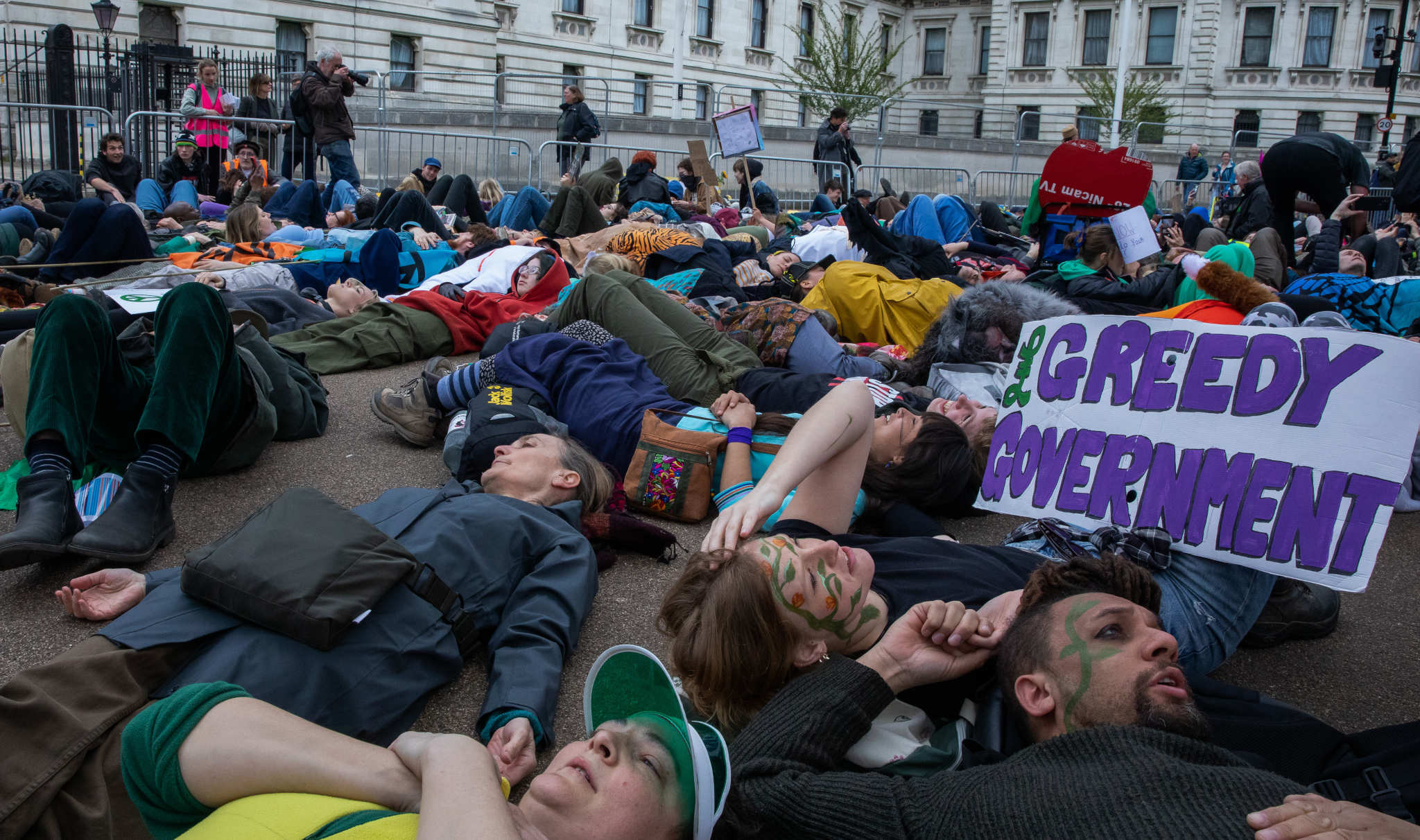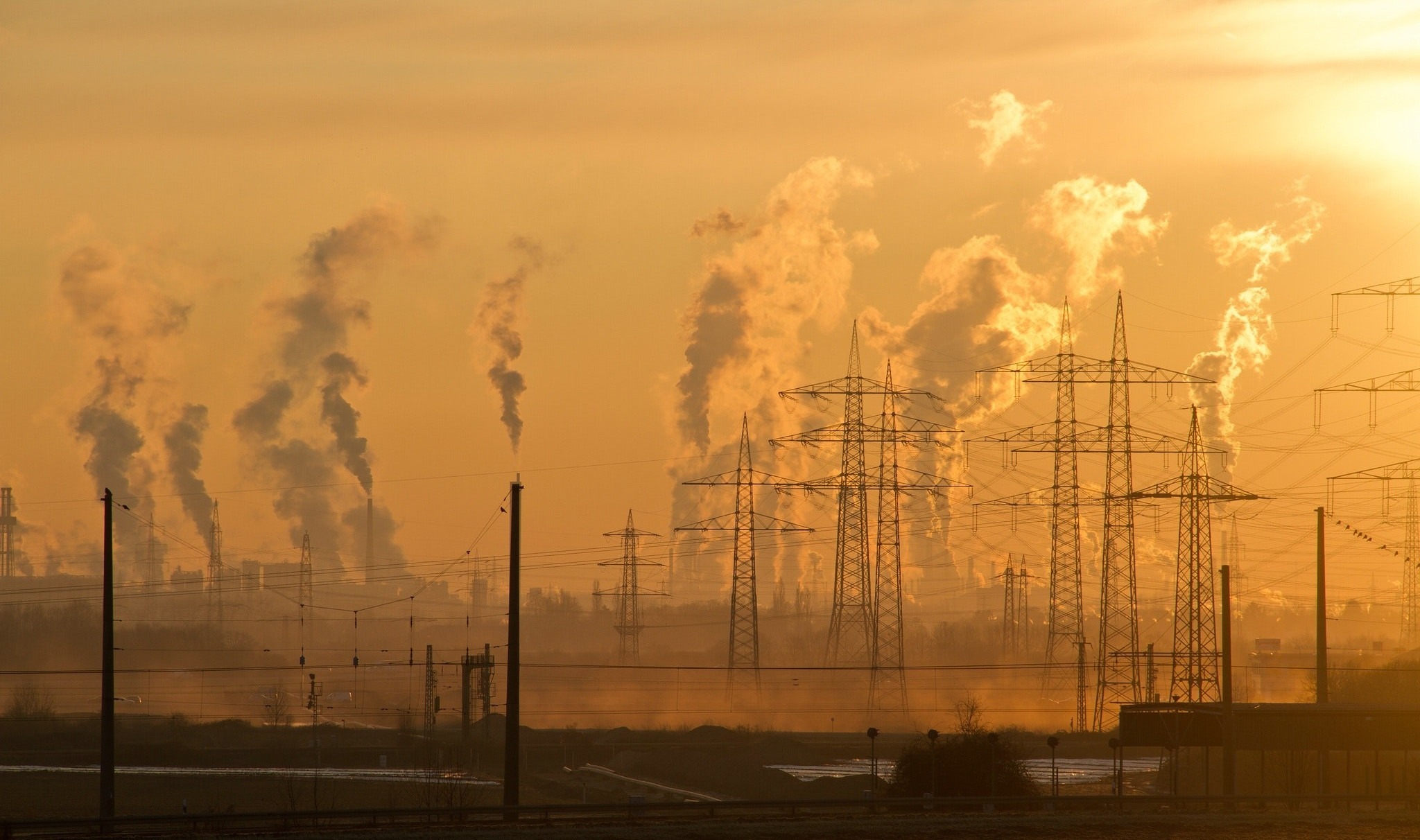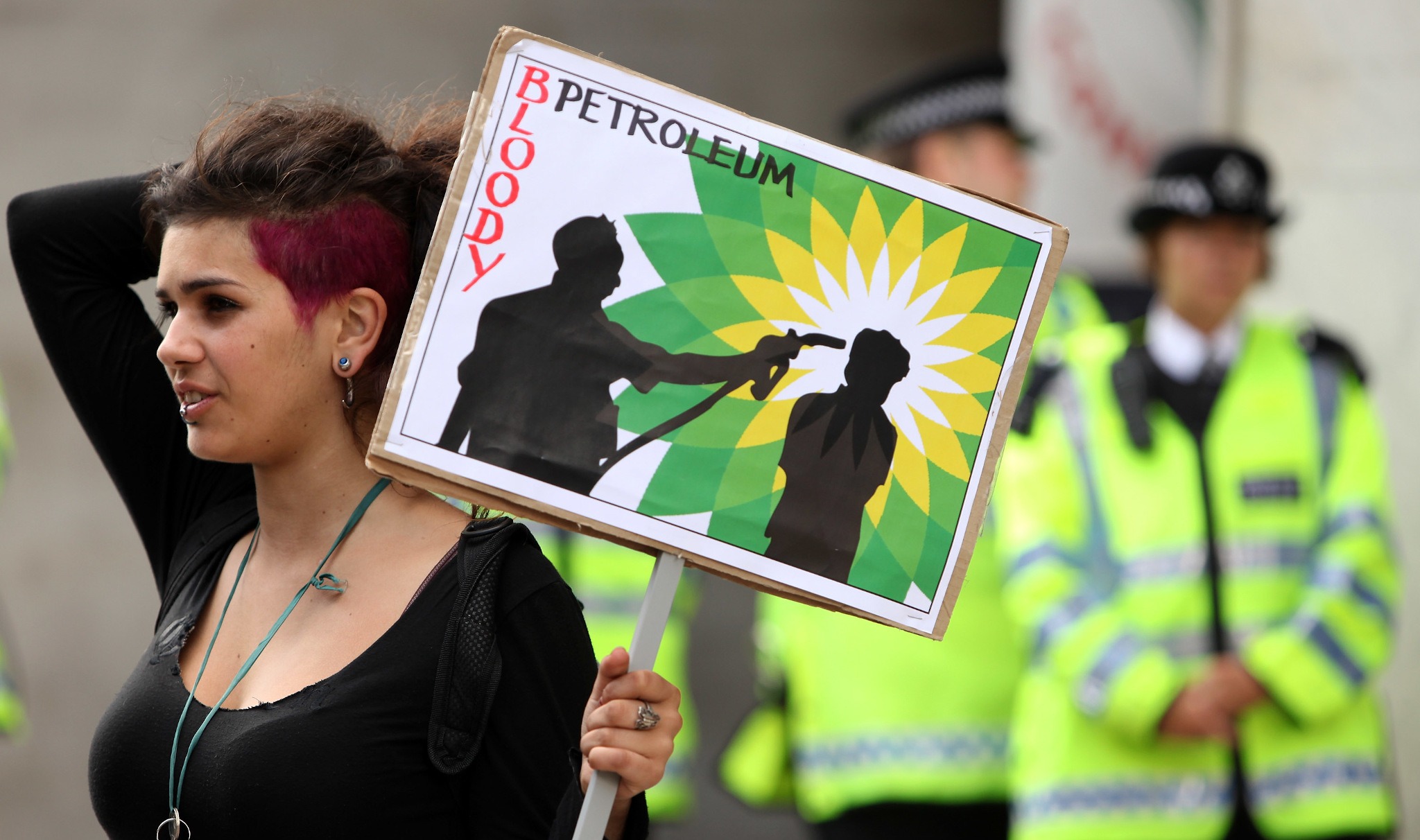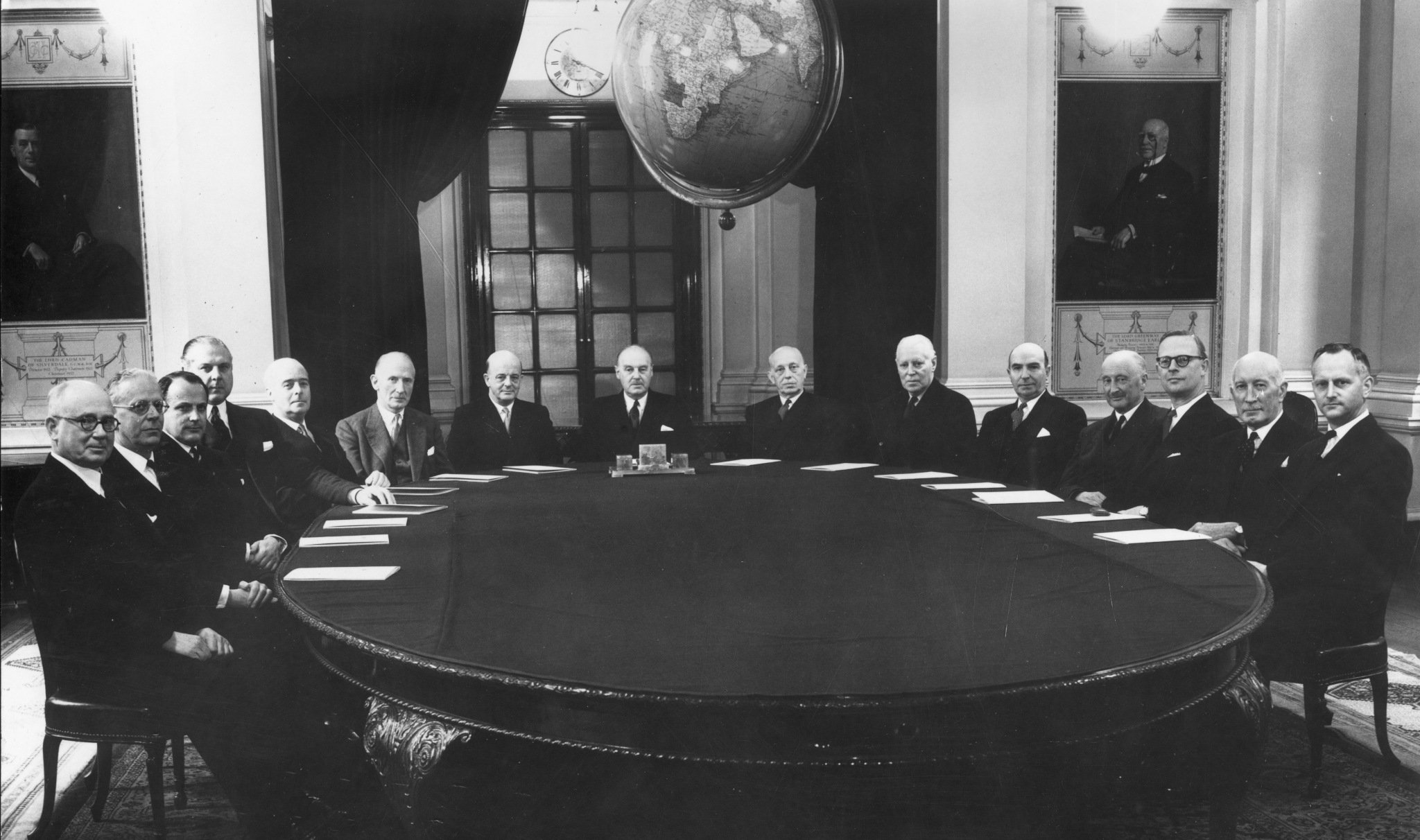“The old is dying and the new cannot be born; in the meantime all sorts of morbid symptoms appear”, wrote Antonio Gramsci, aptly describing our present condition.
The ‘globalisation’ of the 1980s and ’90s has come to an end, not least because of its careless destruction of our environment – our shared and only home – but mostly because it has left most of the world’s population in poverty and insecurity.
But we don’t as yet know what will replace it. In the meantime we have to live with the “morbid symptoms” of a dying order, of which populist nativism is the most dangerous, from Trump to Orban and Modi and the rest of the world’s would-be ‘strongmen’.
It keeps us stuck in permanent polycrisis, and thrives on intractable social divisions, superficial controversy and institutional decay, without offering any kind of constructive solutions.
In Britain, this is now scarily evident in the desperate ‘post-truth’ forays of the terminally unpopular Conservative government.
Those forays won’t work, and this government is history, but meanwhile their so-called ‘culture war’ discredits the body politic yet further. Intelligible national conversation becomes ever harder, and defers ecological and civic sanity and renewal.
All those Conservatives now governing have to offer, seemingly, is outright lies and conspiracy theories. With them, we are stuck in a spiral of austerity, division and decay.
However, there is an even bigger threat than political stagnation.
Global maelstrom
Climate decline and wider environmental catastrophe, in immediately visible local and regional forms that are coalescing into a growing global maelstrom, is a genuinely existential threat such as humanity and nature have never faced before.
If we carry on as we are, we are unlikely to see out this century on a habitable planet. Hard evidence is available everywhere, most graphically this year’s unprecedented sudden jump in ocean temperatures, against a constant background of escalating biodiversity loss.
This must be the context in which the forthcoming UK general election is seen.
“Ultimately Labour has always submitted to the prerogatives of capitalism, militarism and a hostile press”
British parliamentarism has rarely achieved meaningful change in British society. For all the hopes and dreams invested in them, Labour governments have always ended in disappointment.
The establishment of the NHS and the welfare state were fatally compromised, the former by the opening to future privatisation, the latter by the continuation of private schooling in the education system.
Ultimately Labour has always submitted to the prerogatives of capitalism, militarism and a hostile press. More recently, New Labour hollowed out the party and severed its historic links with the organised working class.
The other partner in its historic coalition, the educated middle class, was profoundly alienated by the Iraq war.
Labour failure
Keir Starmer’s Labour Party, New Labour Mk.2, is strenuously managing expectations downwards, reducing its planned expenditure on the ‘green industrial revolution’ each time it gets mentioned anew.
We are most unlikely to see a new government that is politically, financially and technically equipped to deal with our country’s own share of immediate, epochal and existential problems.
The looming general election campaign will provide good hooks for NGOs to hang climate conversations on. But it is no more likely to deliver climate salvation than the COP system– that is, unlikely in the extreme.
The recent record of both the main parties ranges from uninspiring to outright incompetent or dangerous.
“The Labour Party is committed to very little that even begins to address the scale and nature of our predicament”
Britain has been ruled for 13 years by a political party that almost seems determined to destroy all vestiges of social harmony and security, to withdraw the state from ordinary daily life and leave every individual to look after themselves as best they can.
In the meantime, their friends and allies pillage the public realm for their own advantage and profit. Under these Tories Britain has begun to resemble what one derides elsewhere as ‘failed states’, ‘police states’ or ‘banana republics’.
Labour will lead a government that will obviously be better than what we have now, but that’s a very low bar. On its own, the Labour Party is committed to very little that even begins to address the scale and nature of our predicament, while continuing many Conservative policies, including our now extremely illiberal laws on protest, and plans to drill to death in the North Sea.
Undemocratic system
The blatantly anti-democratic ‘first past the post’ system consigns other parties, most notably the Greens with whom we are aligned, to the political wilderness.
Even with up to ten per cent of the popular vote, a realistic prospect according to some current polling, there is every chance that the Green Party will not have any MPs in the next parliament. The best they can hope for is two, possibly three, a small increase in current strength.
The ongoing horrendous Labour failure to call for a ceasefire in Gaza will surely strengthen the Green vote somewhat, but not enough to enable the Greens to win more than a handful of seats.
Such an outcome would be a welcome advance of course; but that this is the best case scenario raises serious questions about the Greens’ established political strategy of gradually building its local and general election vote, often with a peculiarly narrow focus on institutional democracy and ‘local issues’ and representative competence.
Put simply, current Green Party politics and strategy comes nowhere near meeting the multiple and many-layered challenges of our time. There is little point in putting all your political energies into trying to gain access to a dying political establishment.
Getting two or three Green MPs will be a real achievement, but by itself it will not significantly alter our stark trajectory towards eco-driven civilisational collapse.
Regardless of the outcome of the coming election, but especially if the Green Party remains static or is even entirely removed from the Commons (a possibility, given Caroline Lucas’s retirement), it will surely very soon require a different strategy.
In some ways we need to ape the extraordinary success of UKIP, achieved despite its complete lack of success at Westminster, and to accept the harsh reality that the project of saving the world through the slow march of parliamentary ecology has failed. The Green Party’s existing theory of change is broken.
Democratic alliance
What we will need in the coming storms is something like what has at times been shown to work elsewhere in the world in societies that have achieved serious, deep and permanent change.
This is a politics of social coalition and democratic alliance, drawing together people of all classes and identities who recognise the need for profound change in our political economy, our social relations, and the principles on which our country is run.
In countries as different as Uruguay and Poland, properly democratic political systems and cultures have at key moments in their history allowed popular social movements to effect real change for the better in their societies.
But of course one shouldn’t make too much of any of these precedents, which are only partial at best. What is needed now is something quite without full precedent.
Across the whole UK population, people of every political persuasion and none recognise that our current political settlement is broken, more of the problem than the solution, and that the challenge of dangerous human-triggered climate change definitely will not be met by even a reformed business as usual.
The unifying politics we are advocating, which takes seriously that the more-than-emergency we have to face thoroughly changes the game, will only emerge from a broader depolarising project across our culture, built largely from the ground up, which gradually changes our whole society and politics for the better.
For there just is no way forward on this existential threat without getting most of us, and at least the majority, on side. Climate and nature saturate our lives, and are saturated by them.
Public awareness
In other times such a broad depolarising project might sound impossibly ambitious, utopian even. But the silver lining in the gathering storm clouds of climate degradation is the ever wider public awareness of the challenge we face.
There is now a common sense that without transformation, all that we hold dear will be swept away in the coming generation or two. In our conversations, mostly in private, with some ministers, with civil servants, with scientists, with businesspeople, we find this awareness remarkably high.
A soon-forthcoming Ipsos-Mori poll recently conducted by the Climate Majority Project’s incubatee ‘People get real’ will show high percentages among the general public thinking along similar lines.
“The first stage of transformative change is when most people realise that we can’t go on like this”
The taboo around frank discussion of all this in public needs to be broken. The first stage of transformative change is when most people realise that we can’t go on like this.
The second and pivotal stage of such change is when most people realise that most people realise that we can’t go on like this. Scientific reticence is no longer serving anyone, if it ever did.
What people want is the hard truth, provided that they are given help in handling it, provided that there are meaningful avenues available to them to act effectively and collectively upon it, and provided that they understand and see that there are millions upon millions just like them who are all undergoing the same difficult and exciting transition towards action – and thus, towards the future.
But this is not going to happen overnight. There are no short cuts: no tech-fixes; no chance of ‘activists’ suddenly saving the day; and no short-term political ‘solution’.
No climate election
The coming general election just isn’t going to be ‘the climate election’. It will be fought primarily on cost of living and other more immediate crises, and also unfortunately on largely spurious ‘culture war’ issues.
Thus the imperative for a medium/long- rather than merely short-term strategy; to look ten years and not just one year down the pike, to build the groundwork for a future politics that seeks to depolarise and activate rather than to lie and divide.
In this context, it will be vital to keep reaching out, as we do, to those elements of the Conservative Party that are horrified by the antics of the current Government, the people who embody the historic Conservative mission of conserving things.
After Sunak et al get swept away, the struggle for the soul of the Conservative Party will begin in earnest, and much will depend upon it.
Don’t get us wrong. We only have the luxury of being able to say all that we are saying here because it is so starkly clear that the result of the next election is in its outlines already foretold.
This country does not yet know whether Labour will win the next election outright. They may do so with an unprecedented landslide, and the Conservatives may face a near wipe-out. Or Labour may merely become the largest party, and have to govern along with support from one or more other parties.
Such a result might well be preferable for the country, as it makes more likely outcomes such as a new constitutional convention, a change in the electoral system, a greater seriousness on ecology, a better policy-stance on civil liberties including the right to protest.
On the way out
What we do know for sure – what recent by-elections make very clear, and what Tories as diverse as George Osborne and the Bruges Group are now saying openly – is that the Conservatives are going to lose the coming election.
A political earthquake as big as the mad meltdown of the Truss administration is the kind of rare event that parties do not recover from, usually for at least two elections thereafter.
The Truss debacle was even more severe than the Black Friday events that made it certain that John Major would lose the election that followed in 1997, however long he spun things out.
So this Government is on the way out. It would be foolish, pointless in this context, to throw all one’s weight behind trying to make something happen which, thankfully, is going to happen anyway.
Some may argue, plausibly, that what is ultimately required in order to yield the much greater transformation of which we speak is a new political class. But that requires a renewed electorate.
Real change will be led mainly from the bottom up. What we are working for is a new political culture, which depolarises and acts as if our collective future is at stake, which it is.
The iconic 1.5 degrees C ‘safe’ guardrail is about to be breached. It is likely that there will be unprecedented climate disasters, for which we are utterly and woefully unprepared, during the term of the next Parliament.
Having been briefed by worried insiders, we are particularly concerned about the almost complete lack of preparedness in this country for a ‘Level 4’ drought, a scenario that becomes more likely each passing year. Without water, and perhaps without food, current political preoccupations will suddenly come to seem astoundingly transient.
Climate competition
What is needed then, and what is starting to become possible because of these circumstances, is to get to a position, as swiftly as possible, when all serious potential parties of government are competing as to which can be best placed to lead us through the climate more-than-emergency, towards real carbon zero and the resilience-building that is so badly – desperately – needed.
How swiftly is this possible? Perhaps it can be brought about within a decade. Self-evidently it is not what is going to happen during the coming election campaign nor under a timid Starmer-led government.
Labour’s economic plans are and always have been dependent on fossil-fuelled ‘growth’ to revive the capitalist economy. Starmer, as if he is doing public relations work for cancer, promises more, faster ‘growth’ – more of what is killing us, in other words.
Building a new British political consensus for profound change will not be easy. After more than a century of alternating political settlements, from Labour governments which invariably disappoint their supporters to Conservative governments that variously cajole, bribe or intimidate their way into power on behalf of their own rich and already powerful funders, Britain is visibly exhausted, demoralised and dysfunctional.
On top of that, austerity, Brexit and Covid have tested our schools, hospitals, prisons, local government and other public services to near-destruction. It will take many years to sort out the mess.
In the meantime, the environmental clock is ticking remorsely on, and, increasingly, citizens know it. There is no time to waste.
Even with a (part-funded) ‘Green Industrial Revolution’ under Starmer and Ed Miliband (with perhaps some needful cooperation from Liberal Democrats, Greens or Scottish Nationalists and Plaid Cymru), our civilisation is on course for dustbowls, the sixth mass extinction, civil strife, and worse.
Quietly, mostly under the radar, a responsive mobilisation of civil society has already begun. What is emerging is community, professional and business climate action. If resourced, if networked, if incubated, if realised, it will be game-changing, historic. When it has saturated enough of our culture, politics will never look the same again.
If you have a better idea, then we’re all ears. But please don’t bet on the coming election itself being the transformative agent we need. Just don’t. For that way lies only burn-out, and more wasted time that we just cannot afford to waste.
Radical hope gives up on the false hope of parliamentarism in this curious interregnum. Rather, let us look to redesign our common future, so that as our world heats up, elections (if they are still at the heart of our politics at all, a decade from now) become merely the crowning glory for a people determined to rule in such a way that together we will have a future.
Dr. Rupert Read is author of Why climate breakdown matters (Bloomsbury) and Parents for a future (UEA Publishing Project) and Co-Director of the Climate Majority Project.
Dr. Andrew Pearmain is author of The politics of New Labour (Lawrence Wishart) and Antonio Gramsci (Bloomsbury).
The authors thank Liam Kavanagh for detailed comments on earlier drafts, and for inspiring the original conception of this article. But responsibility for their words here is theirs alone.







